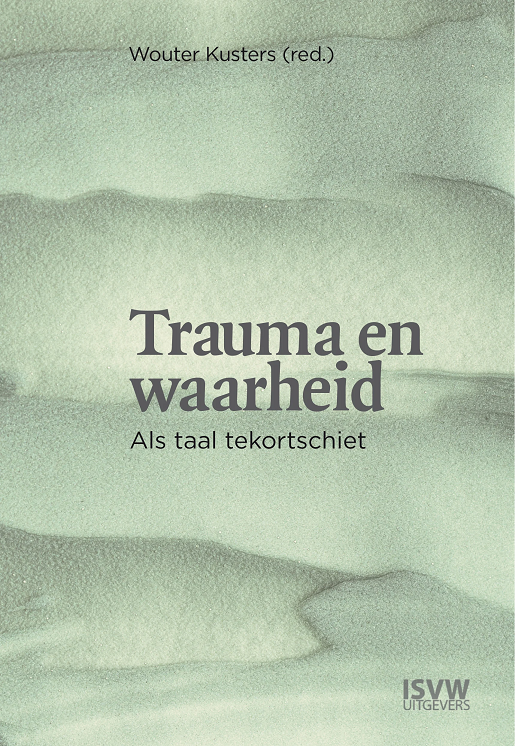The ISVW (International School For Philosophy) publication Trauma and Truth has now been appeared. With contributions by Gregory Bistoen, Hend Eltanamly, Michel Thys, Simona Karbouniaris, Tine Molendijk, Berry Vorstenbosch and a foreword by editor Wouter Kusters.
The essays published are the contributions of the speakers on an ISVW weekend with this theme. It is where I listened with great interest to the presentations of people whose professional lives is deeply concerned with traumatic experiences.
Trauma does not really figure in my life. As readers of De Overtocht (The Crossing) will know, my psychosis did not arise from trauma. The reason I participated in the event was because I was awarded the Van Helsdingen Prize and had the occasion to express my words of thanks (if you want to read it, look here, it is in Dutch). Initially, the idea was to include my words of thanks in the book, but it soon became clear that it did not fit in with the theme of the weekend as a whole. This allowed me to write a new contribution under the title “Cervantes’ Quijote and Mambrino’s Helmet”. In this essay I discuss the war trauma of Miguel de Cervantes, the author of the first novel, and still one of the greatest novels in Western literary history.

I would never have been able to write this essay without the research into war trauma in Cervantes’ work, which was performed by Martha J. Reineke in her publication ‘The Broken Thread: Cervantes, Don Quijote, and War Trauma‘. Perhaps Don Quixote is less of a madman entangled in a world of literary phantasies, than a man who can be understood as a traumatized soldier who has a compulsery drive to understand his contributions to political missions (at that time this included the battle of Lepanto (1571)) as stories of a hero.
